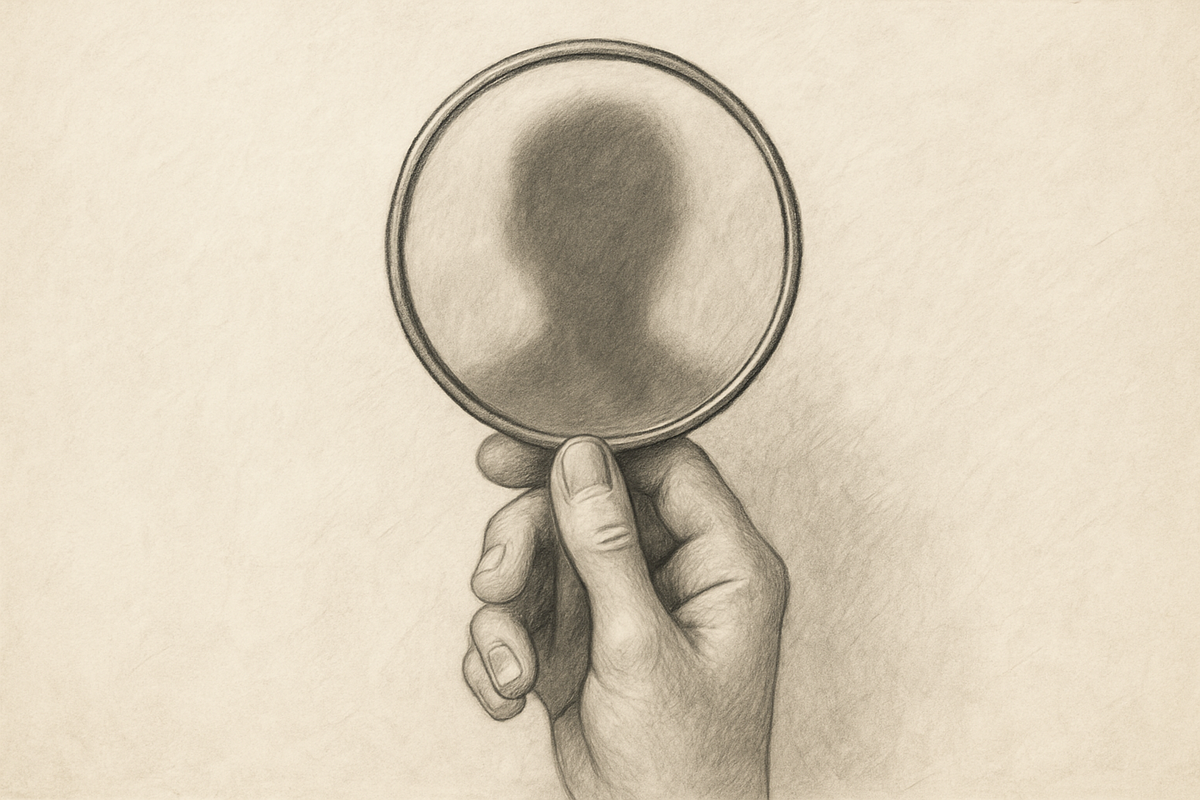Convincing Myself
White lies aren’t always about deception — sometimes they’re about holding together a version of ourselves we’re not ready to let go of.

Most of the lies I told weren’t meant to hurt anyone — they were meant to make me look a little more put together. A little smarter. A little more in control. But the truth is, I wasn’t performing for other people as much as I was trying to convince myself. It wasn’t just about shaping how I was seen — it was about holding together a version of me I hoped was real. And for a while, it worked. Until it didn’t.
It started subtly. Not with big fabrications, just little edits. I’d say I’d been working on something when I hadn’t touched it in weeks. I’d nod along like I’d read the book or seen the film, just to keep the flow going. It always felt harmless. Everyone does it, right? But each time I did it, I felt this tiny pull — like I was stepping just slightly away from myself.
The thing is, these lies didn’t just distort how others saw me — they slowly warped how I saw myself. I wasn’t just skipping facts; I was manufacturing a narrative I wanted to believe. Productive. Driven. Composed. The version of me I could admire. And maybe if I played the part well enough, it would become true. Maybe pretending to be grounded was close enough to being grounded.
But it catches up with you. Or at least it did with me. When the pressure builds to live up to the version of yourself you’ve presented — even if it’s only a few degrees off from the truth — it starts to eat at your energy. You feel the gap. You start bracing for being found out, even if no one’s looking that closely.
At some point, I got tired. Not in a dramatic, falling-apart kind of way — just quietly, gradually worn down by the effort of maintaining something slightly unreal. I started to feel the difference between being perceived and being known. And that was the shift.
And weirdly, being honest — even when it makes me look a little messy — feels less risky than lying ever did.
But that realization didn’t come without some wreckage. There were moments where the lies, even the small ones, chipped away at relationships I cared about. Not because I was malicious — but because I wasn’t being real. People sensed it. And when they did, it made connection harder. Trust got diluted, even if no one could name exactly why.
Owning that wasn’t easy. I wanted to explain my way out of it, to say I meant well or didn’t think it mattered. But at some point, I had to sit with the fact that my intent didn’t erase the impact. The only thing I could really do was stop justifying and start showing up differently.
That meant learning to say “I messed that up” without needing to be forgiven right away. It meant letting go of the version of myself that always had it together, and instead becoming someone willing to be seen in process — still uncertain, still learning.
I still catch myself sometimes — reaching for the version of the story that sounds a little cleaner, a little more put together. But now I try to pause. Not always, and not perfectly. Just enough to notice the instinct, and ask what it’s really for.
Lately, the truth — even when it’s messy, unfinished, or unimpressive — feels more like solid ground than any version I used to perform. There’s less pressure in being real, even when it leaves things open, unresolved, or uncomfortable.
It’s easy to sound better. Harder to be better. I’m trying to choose the hard thing.